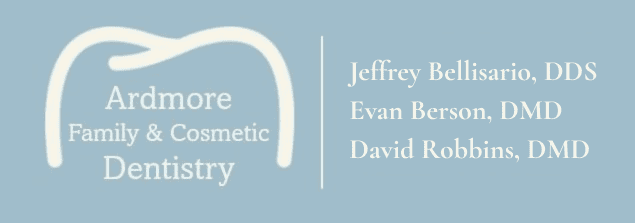Routine visits to the dentist are an important part of maintaining your oral health. While brushing and flossing twice a day can help reduce damage and decay, it’s not enough alone to fully remove plaque buildup. Regularly visiting a dentist in Ardmore, PA, can often help improve your oral hygiene and prevent dental conditions such as cavities. But how often you need to visit the dentist isn’t always the same as another patient. Everyone’s mouth is unique, and it’s important to follow your dentist’s recommended cleaning schedule to help maintain your teeth and gums.

When to Visit a Dentist in Ardmore, PA
While you should always see the dentist if you have pain, discomfort, or bleeding, you also need to visit them routinely for a cleaning and exam. Professional hygiene appointments can help remove stubborn plaque or tartar buildup. Exams allow your dentist to catch dental conditions early on for quick treatment. For most patients, your dentist will likely set you up on a six-, four-, or three-month cleaning schedule. Depending on your oral health and certain medical conditions, you may need to change your cleaning schedule as time goes on.
Every Six Months
Many patients with healthy mouths and good at-home oral hygiene routines only need to see the dentist every six months. It’s important to keep in mind, however, that the specific dates you choose could influence your insurance coverage. Some insurance policies offer coverage for two cleanings every calendar year. Others, however, specifically state every six months. It’s important to know which policy you have to ensure your hygiene appointments are scheduled properly.
Every Four Months
Some patients will need a third cleaning each year to help maintain their oral health. There are many reasons for this, including the following:
- A genetic predisposition for plaque buildup
- Medical conditions such as dry mouth
- Pregnancy
- Certain prescription medications that affect your oral hygiene
- Difficulties brushing and flossing properly (often caused by limited mobility issues)
Over time, your dentist will track your oral hygiene and health. If they notice that you are struggling to maintain your teeth and gums between appointments, they may suggest a third cleaning to help.
Every Three Months
For patients who have developed gum disease, there are often deep pockets in the gums around the teeth. The gum tissue won’t grow back, and these pockets can make it difficult to remove plaque and food particles. For this reason, your dentist will likely suggest periodontal maintenance appointments between your routine hygiene visits. These extra cleanings for your gums can help prevent the return of gum disease and the development of decay.
Preventative dentistry is key if you want to avoid developing serious dental conditions. Call our office today at (610) 839-8967 to schedule an appointment and see what kind of hygiene schedule is best for you.
